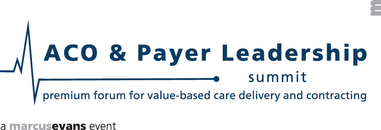Learn, explore and unleash your inner chef.
For more information, please contact:
Sarin Kouyoumdjian-Gurunlian
press@marcusevanscy.com
“Any Accountable Care Organization (ACO) that is taking meaningful financial risk for the population served should consider starting its own health plan and moving toward full risk for its population,” suggests Will Shrank, Chief Medical Officer, UPMC Health Plan and UPMC Insurance Services Division. “To manage a population better, it should implement and adopt a number of tools. Healthcare is very local, so ACOs have to learn their way to better management of a population,” he adds.
Will Shrank is a speaker at the marcus evans ACO & Payer Leadership Summit Fall 2017, in Los Angeles, California, September 14-15.
How does UPMC bring data together from different sources?
UPMC has a unique model, where both the insurance company and the health system are owned by the same parent organization. As a result, many of the typical barriers and challenges of data integration and sharing are overcome, and we can deliver better care at a lower cost. Additionally, we have made substantial investments in our infrastructure and people, built a rich team of analysts and IT experts to pull together all our assets. Our technology platforms and clinical programs can leverage data from the system and the insurance Division.
There are complexities in creating a groomed data layer. We are not just focused on EMR clinical data and claims data, but also admissions discharge feeds, telehealth data, and patient reported outcomes. There is no natural linkage between these data sources and the structures differ. It requires a lot of work and resources, but it has been one of our key commitments from day one.
There is more and more technology in the marketplace focused on bringing resources together. Ultimately, if an organization lacks all the assets internally, it has to either partner or contract with one that can help.
Has UPMC reached the level of data sharing that it desires or considers necessary for providing better care?
It can always get better, but we have made enormous progress. Our technology platform called Health PlaNET allows us to manage utilization, care and disease management through a single platform and to interact with different providers in different positions within the individual’s entire care continuum. The platform allows us to bring the right data to the right people.
There are meaningful challenges around data privacy that limit what we can share so we scrub our data. We also must be careful when sharing data with providers to ensure we do not give others a competitive advantage, particularly around cost. As we move towards a more value-based system we have to figure out how to do that better.
How can ACOs ensure information is actionable data?
Our technology platform does not just send information out but gives very specific action sets to everyone along the care continuum for each patient we manage. The information defines their work. How can others do this? They need that mindset. ACOs must change the way they think and build the right algorithms to be able to interpret data to a set of action items.
What advice do you have on improving engagement and the member experience?
It is important to understand where patients are coming from and provide information through the channels they find easy and convenient. That means leveraging different tools. We have to figure out how to deliver care at the right place, time and price. ACOs are taking more risk on the populations they serve, so what used to be a profit center is now a cost center. ACOs should be more aware of how to deliver what patients actually need, meet them where they are, deliver less costly and more convenient care, to create more loyalty and engage them better.
Ahead of the marcus evans ACO & Payer Leadership Summit Fall 2017, Will Shrank discusses population health management and how UPMC's structure helps them provide better care
Will Shrank, MD
Chief Medical Officer
UPMC Health Plan and UPMC Insurance Services Division
The Value of Integrating Health Systems with Payors
- VP – Network / ACO Integration, Allina Health
- VP – Population Health, Atrius Health
- VP – Health Care Analytics, Blue Cross Blue Shield of Louisiana
- CEO, Central Virginia Coalition of Healthcare Providers LLC
- President and CEO, Hamilton Health Care System
- CEO, Health Share of Oregon
- Director of Quality & Care Management, Mercy ACO
- Manager of Finance & Analytics, Polyclinic/Physician Care Alliance
- SVP & Chief Medical Officer/COO, Texas Health Resources
and more…
About the ACO & Payer Leadership Summit Fall 2017
The ACO & Payer Leadership Summit is the premium forum bringing senior level executives from both public and private health insurance plans, ACOs, and integrated hospital systems together with solution providers. The Summit offers an intimate environment for a focused discussion of key new drivers shaping the healthcare industry. Taking place at the Four Seasons Hotel, Westlake Los Angeles California, September 14-15, the Summit includes presentations on consumer-driven innovation, the future of managed care contracting, integrating social determinants into care delivery, care mode redesign and strategies to achieve the quadruple aim, data-driven decision making and the generation of population health.
Copyright © 2017 Marcus Evans. All rights reserved.
- Jordan Asher, MD, Chief Clinical Officer, Ascension Care Management
- Cecilia Sun, VP, Digital Customer Experience & Innovation, Blue Shield of California
- Amy Turner, Executive Director and COO, Innovation Health – Aetna, Inova
- Lawrence Kissner, Chief Executive Officer, Aetna Better Health of IL
- Barrier Baker, MD, Chief Medical Officer, Tufts Health Public Plans
- Joe Kimura, MD, EVP and Chief Medical Officer, Atrius Health
and more...
September 14-15, 2017
Four Seasons, Westlake, Los Angeles, California

